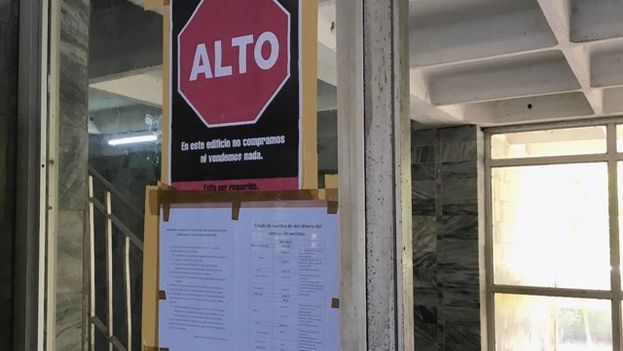
![]() 14ymedio, Zunilda Mata, Havana, 2 November 2016 — In a speech in front of foreign businessmen at the International Fair of Havana (FIHAV), the Foreign Trade Minister Rodrigo Malmierca, emphasized the country’s urgency to receive “high rates of investment.” However, outside the Expocuba fairgrounds, the speech’s echoes are barely heard and the informal market continues to set the pace of life.
14ymedio, Zunilda Mata, Havana, 2 November 2016 — In a speech in front of foreign businessmen at the International Fair of Havana (FIHAV), the Foreign Trade Minister Rodrigo Malmierca, emphasized the country’s urgency to receive “high rates of investment.” However, outside the Expocuba fairgrounds, the speech’s echoes are barely heard and the informal market continues to set the pace of life.
While the national press talks about a portfolio of opportunities, the Cuban people immerse themselves in illegality to survive.
“In this building we buy and sell nothing,” reads a sign at the entrance to a concrete block with more than 100 apartments located in Havana’s Plaza district. The warning, placed by the neighbor’s council in collaboration with the Communist Party militants, fails to stop the sellers who knock on families’ doors offering everything from eggs to small appliances. Now, they just have to do it with more discretion.
The official rhetoric is having a love affair with foreign investors, whom it wants to convince that the island is a good place to build an industry, run a hotel or produce cigarettes, but within the country, the local entrepreneur is viewed with suspicion by the authorities. With the outlawing of selling imported clothing and footwear, the capping of prices in agricultural markets or the recent end to the issuance of licenses for private restaurants, many small businesses have turned to the illegal networks to offer their products. All that’s left for them is to go door to door, knock quietly and offer their merchandise.
